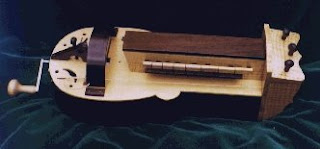
I've been willing to write about Lady Gaga for a little while, but it was incompatible with postdoc application time so I postponed. Also, I wasn't too sure, to be honest, what I could possibly write about her that would not be too obviously dumb. My attention was brought to her by this video (not exactly the official vid -- careful). Check out this video rather, viewed more than 300m times (I remember a time where a million views was amazing..) [I'm not saying there's nothing lame about the video btw]. I liked the fact that some of the lyrics are in French, or at least in some sort of French. Quite glam I thought, for an American pop song. Also there's a purer rave sound than you'd expect, stuff that was underground in the 90s but that still does the job OK. Then I realized that Lady Gaga is closer to a performance artist than a pop star, and a rather interesting one moreover. My first suspicion of her significance was confirmed when I learned that the young US officer that smuggled the 240,000 diplomatic cables published by Wikileaks did so by burning them on a Lady Gaga CD! This mixture of art and political revelations might appear coincidental but I like to imagine, a bit in the spirit of Wreck & Salvage, that there is some deeper connections, whose roots dive into the current American Zeitgeist. Whatever.
Gaga's first words in Bad Romance are something like
Rha rha a ah ahaRoma rromama aGaga oh lala aWant your bad romance
[Just to mention, there are already two French elements in there: the rolled "r" and the "oh lala".]
And this is the kind of thing that will play in your head while you're cooking for instance. So at some point I asked myself but what is she saying for fuck's sake? There are words that I can recognize, specially the last bit, that's rather clear, and "Gaga" also makes an apparition, and there are bits that are clearly just sounds, like the "ohooho" of the introduction; but what I find puzzling is that there is also something that is between the two.
First, the "rha rha" are purely bestial (think MGM lion) and they degenerate, just like every line, to some simply musical sounds. Then comes the intriguing part: "Roma". This also appears as just a meaningless sound but it's far too close [sic] to the "romance" in the title of the song not to be related to it. Certainly it has to be some embryonic version of it. Something is taking shape here, from the bestiality of a prelinguistic realm towards some more advanced form of communication, namely language. Notice also that when the "roma" degenerates, one could hear "mama" [compare to "papa paparazzi"]. Just like what happens in the development of a child, the first thing that comes out of the undefined darkness is the figure of the mother. Then comes "Gaga", the ego. This also frequently a child's first sounds. And finally something resembling a sentence expressing a desire towards the other can be formulated.
So my verdict would be that this chorus illustrates the genetics of the artistic process, through which a raw emotion is sublimed into some creation that resort to a higher level language.
Now one could wonder if this emergence process was successfully performed in this case. After all, it all comes to wanting "your bad romance". Sounds more like a destructive drive to me. In addition, the ego/other or subject/object couple is not adequately articulated. Not only is the "I" still missing, but also it would seem more natural to want "our romance" instead of "yours". Similarly, later in the song one hears "And I want your revenge": what is that suppose to mean? Well, maybe this is intended as "I want my revenge on you". That would make more sense. Unless... Could the artist be skillfully using this me/you confusion to underline the fact that such a vicious spiral of projections and counter-projections often characterizes a "bad romance"? Stefani Germanotta: brava!






